April 22, 2025 | 02:33 GMT +7
April 22, 2025 | 02:33 GMT +7
Hotline: 0913.378.918
April 22, 2025 | 02:33 GMT +7
Hotline: 0913.378.918
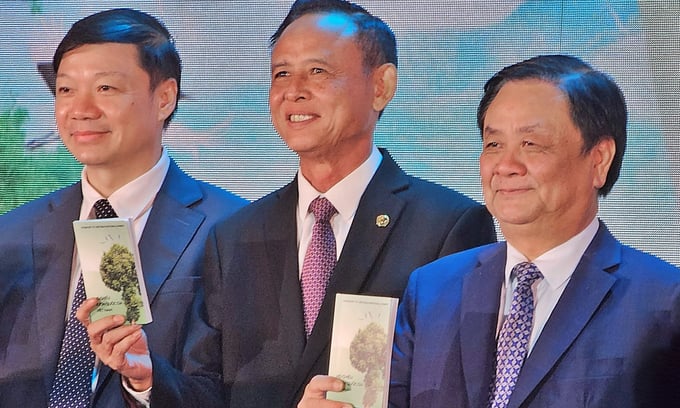
Minister Le Minh Hoan, former Deputy Minister Ha Cong Tuan, and General Director of the Department of Forestry Tran Quang Bao (pictured from right to left) with the first National Park Passports. Photo: Bao Thang.
During his opening remarks at the Public-Private Partnership Forum for development of the multi-faceted value of forest ecosystems, Minister of Agriculture and Rural Development Le Minh Hoan requested participating delegates to reconnect with nature, emphasizing that nurturing a love for nature will also foster an inclination to preserve it for future generations.
According to Minister Hoan, the development of the multi-faceted value of forest ecosystems creates new future prospects for people who are unfamiliar with their importance. Insights shared during the forum highlighted modern societal apprehensions towards forests, with insect bites and wildlife encounters as primary concerns.
Minister Hoan emphasized the need for the community to enhance its intrinsic value through personal initiative: "Each person seated here holds a distinct value, united by their love for forests. We aspire to enrich the value of forests, but first, we must foster community and societal concern for their welfare."
One of the obstacles in connecting people to the forests, as highlighted by Minister Le Minh Hoan, is the relative distance between forests and urban centers. Namely, Ba Vi is the closest National Park to the city of Hanoi, requiring over an hour of driving. As a result, the park is relatively inaccessible to the general public.
"Humans often fall prey to a common trap," the Minister commented, "which is that when we love something too much, we tend to only talk about it without taking actions. For instance, people who love forests tend to only talk about forests without realizing that they can inspire the community to share this love, and develop an ecosystem. Not everyone visits the forest out of passion; some wish to explore, while others seek to challenge their personal limits."
Acknowledging these dynamics, Minister Le Minh Hoan encouragee the community to "be more proactive." He further emphasized that daily actions—such as responsible waste disposal and tree planting—empower individuals to rediscover personal fulfillment in forest environments, and inspire others to join in the effort.
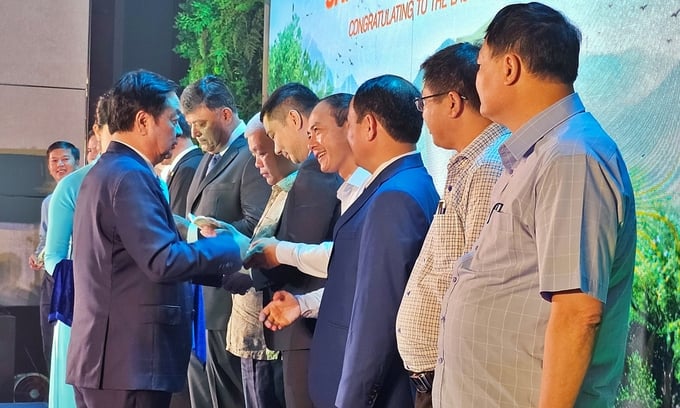
Minister Le Minh Hoan presenting National Park Passports to delegates at the ceremony. Photo: Bao Thang.
With the increasingly limited state resources, the need for socializing forest management, protection, and development becomes increasingly urgent. Accordingly, public-private partnerships have the opportunity to utilize their respective strengths and alleviate the sense of isolation.
Notably, reconnecting people and forests remains a challenge. Vietnamese citizens currently show little interest in eco-tourism or nature experiences. On the other hand, local governments and management agencies face policy constraints, whereas forest management boards are restricted in terms of promotional activities. Additionally, the business community struggles to match revenue with potential.
"The key isn't to think what we're doing is the best, but rather, to ask if there's a better way," emphasized the Minister, adding that difficult tasks may be achievable if approached with a positive mindset.
The National Park Passport initiative acts as a bridge that connects responsibilities and benefits among stakeholders. In addition to exploring forest values, visitors are encouraged to "experience" competition, share personal stories, and promote these interactions within the community.
Initially implemented across 34 national parks, the National Park Passport can be obtained in either physical or electronic formats. Visitors can stamp their paper passports upon entry or via an application at each new national park. Personal impressions and evaluations are also recorded within the passport system.
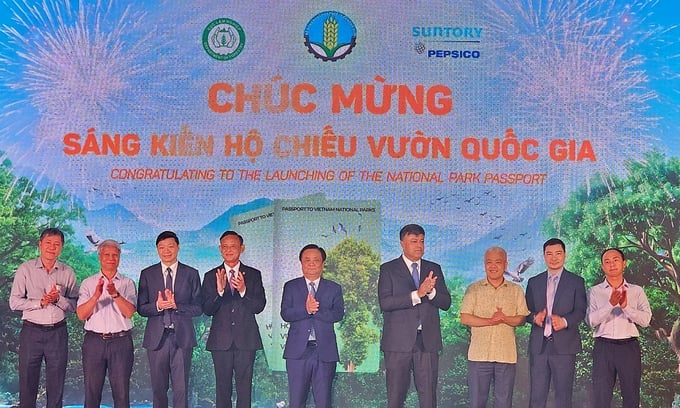
Delegates pressing the button to launch the National Park Passport initiative. Photo: Bao Thang.
Nguyen Van Thai, General Director of the Save Vietnam's Wildlife Center, noted that national parks saw a relatively low level of visitors in recent years. Namely, approximately 3.1 million visitors (3% of the Vietnamese population) visited these sites in 2023. Conversely, nearly one person in the United States visits a national park at least once a year.
The National Park Passport initiative has been implemented across many countries around the world, with the goal of enhancing environmental awareness, promoting cultural education, boosting tourism activities, and generating sustainable income for designated forest areas.
Several national parks in Vietnam excel in eco-tourism activities. For instance, Phong Nha - Ke Bang National Park welcomed nearly 700,000 visitors in 2023; and Con Dao National Park hosted over 500,000.
Nguyen Khac Pho, General Director of Con Dao National Park, acknowledged that diverse eco-tourism activities have provided sustainable income for the local management and residents, as well as facilitated effective biodiversity conservation efforts.
"The National Park Passport initiative will inspire visitors to Con Dao," General Director commented, committing to promptly promote and widely disseminate this initiative.
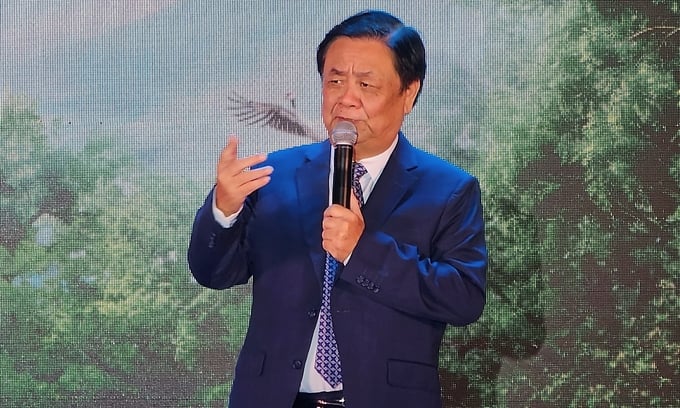
Minister Le Minh Hoan: "Don't tread the forest path alone." Photo: Bao Thang.
Expressing confidence in the initiative's success, Minister Le Minh Hoan shared that documentation regarding the National Park Passport initiative has been delivered to National Assembly delegates, local governments in forested regions, as well as timber processing and non-timber forest product trading businesses. "They have expressed a keen enthusiasm," the Minister added, speculating that the passports have seemingly "made a breakthrough," or "built a bridge to nature" in the minds of many.
"I have often advised these stakeholders against working alone because no one can succeed in isolation. The management of forest is no exception to this rule. We must find ways to enrich the community, at least emotionally, with a sense of comfort when returning to the forest, rather than reluctantly embracing it," emphasized the Minister.
The National Park Passport is only the initial steps in the Ministry of Agriculture and Rural Development's project for the development of the multi-faceted value of forest ecosystems. This project has received approval from the Prime Minister on February 29, 2024.
With this initiative, the Ministry aims to increase revenue from community-based tourism, eco-tourism, resort stays, and recreational activities in forest ecosystems by 50% compared to 2020 in 2030, and by 100% in 2050.
Translated by Nguyen Hai Long

(VAN) At the close of the P4G Summit, delegates agreed to transform agricultural and food systems sustainably, ensuring food security while protecting the environment.
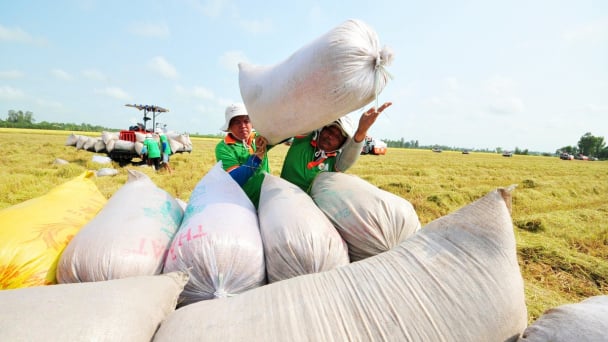
(VAN) The rice industry in the Mekong Delta is undergoing a major transformation, shifting toward sustainable, high-quality, and low-emission exports to meet the green and clean standards increasingly demanded by international markets.
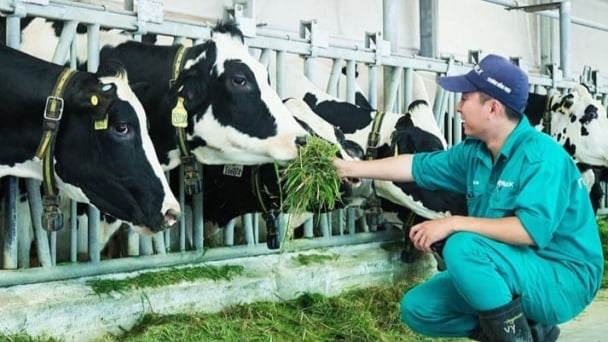
(VAN) According to Tong Xuan Chinh, Deputy Director of the Department of Livestock Production and Animal Health, Vietnam’s dairy cattle industry must overcome seven major challenges to achieve sustainable development.
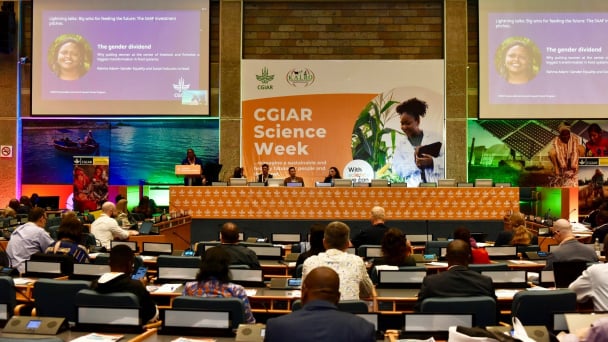
(VAN) The CGIAR’s Sustainable Animal and Aquatic Foods (SAAF) program represents a new approach that emphasizes the transformation of food systems toward sustainability.
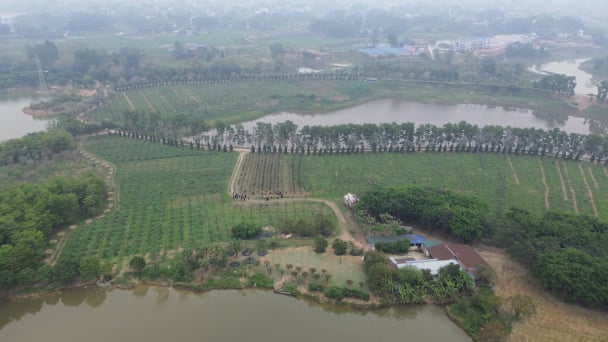
(VAN) Scientists assume that industrial agriculture has been 'outdated.' As a result, a comprehensive overhaul or a revolution in the direction of embracing ecological agriculture is needed.
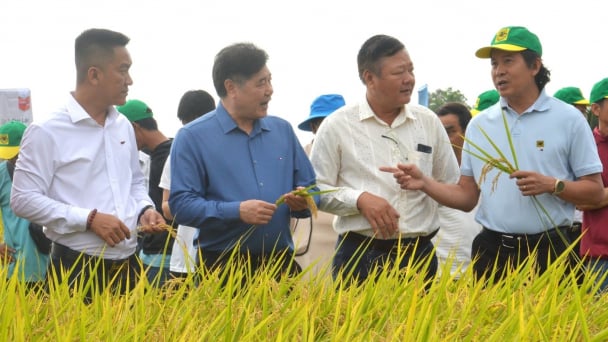
(VAN) The results from pilot fields are catalyzing the expansion of the One million hectares of high-quality, low-emission rice project in Kien Giang.
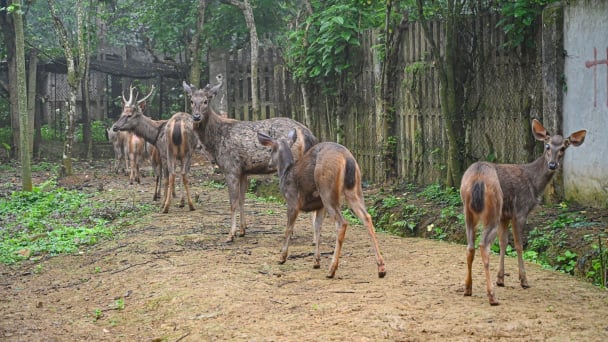
(VAN) On the morning of April 11, Cuc Phuong National Park received 18 individuals of endangered and rare wild animals from Da Nang city.